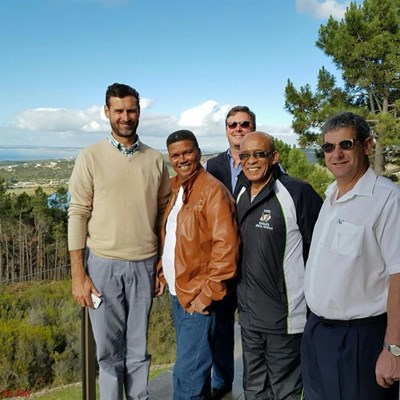The limits – which take retroactive effect from 1 July 2018 – are based on a strategic framework for remuneration of senior managers across all municipalities, the document states.
It added that the framework takes into account ‘core reward principles’ and is aimed at ensuring that the remuneration of senior managers is ‘cost-effective, consistent, internally balanced (equitable) and externally competitive’.
Based on this, the framework allocates points to municipalities based on the total municipal income, total population sizes, and equitable share of individual municipalities.
The total number of points allocated to a municipality are then categorised on a scale from one to ten, which determines remuneration levels.
This is further split across a ‘minimum’, ‘midpoint’ and ‘maximum’ level based on the background, tenure and capabilities of individual managers (among other factors).
The upper limits of the annual total remuneration packages payable to municipal managers are as follows:
While the remuneration amounts are based on a wide number of factors, the new limits show that it is possible for municipal managers to effectively earn more than South African President Cyril Ramaphosa.
President Cyril Ramaphosa is expected to earn a salary of R3.6 million in 2018 – easily making him one of the best-paid leaders in the world.
However, it should also be noted that Ramaphosa will donate half of this salary to a new fund that will be managed by the Nelson Mandela Foundation.
Top-level managers
The Gazette also sets out the upper remuneration limits for top-level managers who report to municipal managers.
The upper limits of the annual total remuneration packages payable to managers directly accountable to municipal managers are as follows:
Disappointing figures
The South African Municipal Workers’ Union (SAMWU) said it was ‘disappointed’ about the new upper limits.
“As Gazetted on the 8 November 2018, city managers are set to receive an annual salary of R3.9 million while those reporting directly to municipal managers will be receiving over R3 million annually,” it said.
“These increases happen when municipal workers are heavily underpaid, when municipal workers demand a fairer salary increment they are told that their demands are simply unaffordable whereas those sitting in air-conditioned offices are swimming in pools of money, those who are subjected to rain, wind and sun daily are given peanuts.”
It added that these increases were Gazetted in the same week that Extended Public Works Programme (EPWP) workers’ salaries were increased by a mere R4.31 per day.
“It does not make sense how a Municipal Manager can be remunerated 180 times more than the least paid employee in the sector. These are the people who are responsible for the real business of service delivery,” it said.
“It is for this reason that SAMWU will be intensifying its campaign for the absorption of all EPWP workers by municipalities on a permanent basis. EPWP participants are delivering a municipal service and as such they should be absorbed by municipalities.
“We maintain that the ridiculous and highly inflated salaries given to Municipal Managers should be redirected towards service delivery and for better remunerating municipal workers.”
You can find the full framework detailed below:
COGTA Gazette 42023 November 2018 by BusinessTech on Scribd
NEW MUNICIPAL MANAGER FOR MOSSEL BAY
24 November 2016
MOSSEL BAY NEWS - Advocate Thys Giliomee was appointed as Municipal Manager of Mossel Bay with effect from 1 December 2016, the Executive Mayor, Alderman Harry Levendal, announced at the monthly meeting of the Mossel Bay Town Council today, 24 November.

“The Municipality has established itself as one of South Africa’s leading municipalities over the past number of years and I am sure that Adv Giliomee will continue to build on the foundations that he will inherit,“ said Alderman Levendal.
Adv Giliomee (53) holds a B Econ as well as an Honours degree in Public Administration from the University of Stellenbosch and a B Com Honours in Economics, a B Proc, an LL M and a Certificate in Labour Relations (Cum Laude), all from the University of South Africa. He was admitted as an advocate of the High Court of South Africa in April 2005.
His career in local government started in December 1988 with the Cape Metropolitan Council in Stellenbosch. He subsequently worked at the Oostenberg Municipality, the City of Tygerberg and the City of Cape Town. Following a number of years in the private sector, mainly as the owner of his own labour relations consultancy, he had a spell with Bitou Municipality in 2012, first as Acting Chief Financial Officer and then as Acting Municipal Manager.
On 1 August 2012 he became the Chief Executive Officer of the Western Cape Liquor Authority on a fixed-term contract until 31 October 2015. He joined the Office of the Premier of the Western Cape on a fixed-term contract as a part-time consultant on strategic programmes on 1 November 2015, while at the same time practicing as a private labour specialist.
The position of Municipal Manager became vacant in May 2016 when Dr Michele Gratz resigned as Municipal Manager. Mr Harry Hill was appointed as Acting Municipal Manager when Dr Gratz resigned.
- Kieswet is strydig met die Grondwet - kiesers wil vir individue en nie 'n politieke party stem nie, sê kenner
- Mosselbaai Toerisme: Vyf top-direkteure loop oor burokratiese magspeletjies
- Politieke inmenging en geskille in munisipaliteite en amptenare se kwalifikasies bekyk































